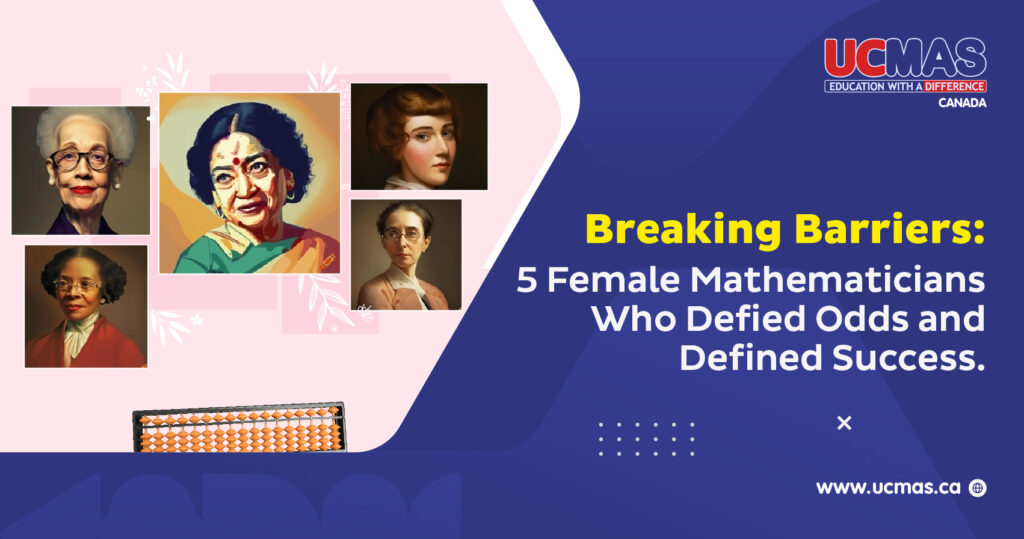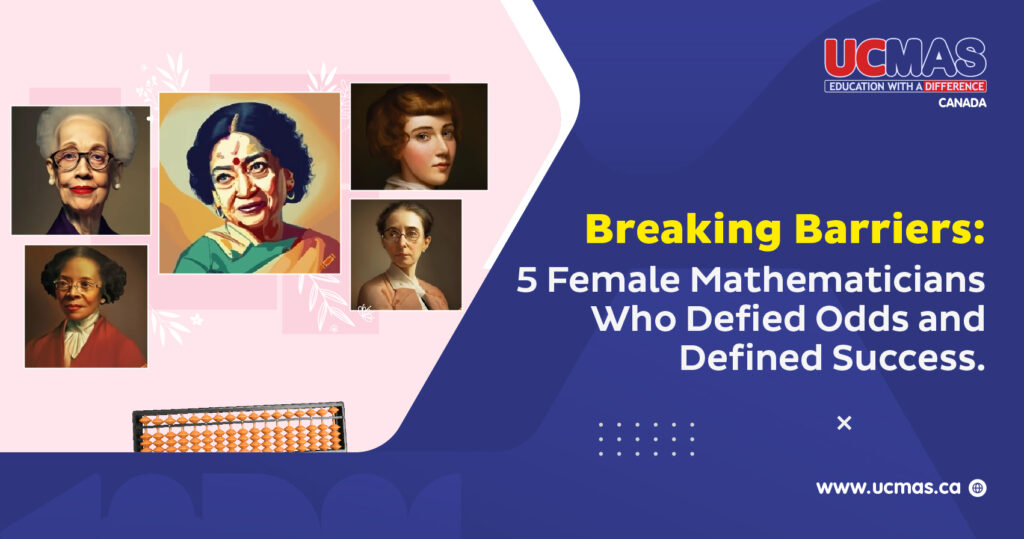
Throughout history, societal norms have frequently constrained the opportunities accessible to women due to gender biases. Despite these challenges, some visionaries defied societal norms to pursue their love for mathematics. The perseverance of these women not only laid the framework for modern mathematics but also proved that math is unbiased. It does not discriminate against any race or gender. Their inspiring stories serve as a reminder that anyone with a determined spirit and a dedication to the subject can delve deep into the infinite world of mathematics.
As Women’s Day approaches, let’s take the opportunity to educate our children about the significant achievements of these pioneering female mathematicians. From launching us into space to demystifying complex calculations, the incredible work of these women should never be forgotten. While the list of these notable women is extensive, here are five women whose stories have inspired generations.
Katherine Johnson: The Hidden Figure
We will always have STEM with us. Some things will drop out of the public eye and will go away, but there will always be science, engineering, and technology. And there will always, always be mathematics.
Katherine Johnson’s brilliance as a mathematician at NASA was pivotal in propelling America into the space race. Born in 1918 in West Virginia, Johnson displayed remarkable mathematical abilities from a young age. Her education journey was marked by the ‘firsts’ of many like she was the first African-American to attend a graduate school. Despite facing racial and gender discrimination during her time at NASA, Johnson’s calculations were crucial to the success of numerous space missions, including John Glenn’s orbit around the Earth and the Apollo 11 mission to the Moon. In recognition of her outstanding achievements, Johnson was awarded the Presidential Medal of Freedom by President Barack Obama. Her story, as depicted in the film “Hidden Figures,” highlights her remarkable contributions to mathematics and space exploration.
Shakuntala Devi: The Human Computer
Without mathematics, there’s nothing you can do. Everything around you is mathematics. Everything around you is numbers.
Shakuntala Devi, often referred to as the “Human Computer,” was a mathematical prodigy from India. She displayed exceptional talent in math from a young age but could not take up formal education in her former years due to the weak economic condition of her family. Shakuntala’s talent was soon recognized as she started performing in local and national road shows in India. Her popularity soared and Shakuntala eventually moved to London. Her talent was on full display in Britain and she gained worldwide fame when she appeared on a BBC show. Her answer to a mathematical problem was spot on as opposed to that of her host. This is one of the many instances that Shakuntala astounded her audience with her mental math skills. Shakuntala’s ability to solve complex mathematical problems earned her a place in the Guinness Book of World Records. Her story is a testament to the extraordinary power of the human mind and its capacity for mathematical brilliance.
Evelyn Boyd Granville: The Educator
I always smile when I hear that women cannot excel in mathematics.
Evelyn Boyd Granville was one of the first African-American women to earn a Ph.D. in mathematics. Born in 1924, Granville went on to major in mathematics and physics, despite her financial challenges. She worked as a teacher in her initial years and went on to work as a computer programmer. Granville is accredited with significant contributions to numerical analysis and computer programming. Despite facing discrimination throughout her career, Granville pursued her passion for mathematics and later became a dedicated educator, inspiring countless students to pursue careers in STEM. Through her hard work and perseverance, Granville broke barriers and paved the way for future generations of women and people of color in the field of mathematics. Her legacy serves as a reminder of the importance of representation and diversity in all areas of academia and beyond.
Emmy Noether: The Theoretical Genius
My methods are really methods of working and thinking; this is why they have crept in everywhere anonymously.
Emmy Noether, born to a Jewish family in Germany in 1882 was a remarkable woman who broke ground in mathematics and science. She was proficient in French and English and initially trained to be a teacher, however, she pursued her true passion and eventually studied math at University. Her groundbreaking theorem linking symmetries and conservation laws revolutionized modern physics, yet her work was often overshadowed by her male contemporaries. Noether’s legacy serves as a testament to the enduring impact of women in mathematics and science.
Julia Robinson: The Pioneer of Modern Number Theory
What I really am is a mathematician. Rather than being remembered as the first woman this or that, I would prefer to be remembered, as a mathematician should, simply for the theorems I have proved and the problems I have solved.
Julia Robinson was an American Mathematician born in 1919. Despite facing gender discrimination, Robinson persevered and became the first female mathematician elected to the National Academy of Sciences. Her groundbreaking contributions to decision problems and Hilbert’s tenth problem cemented her legacy as one of the most influential mathematicians of the 20th century.
Ready to make your child the next trailblazer in math? Start with a strong foundation in proven strategies of mental math. The UCMAS math programs and abacus math are dedicated to empowering your child to take on challenges confidently and enrich their learning experience. Why should you embrace abacus learning for your child, read our blog and find out.
Contact us to start your child’s transformative math journey today!






